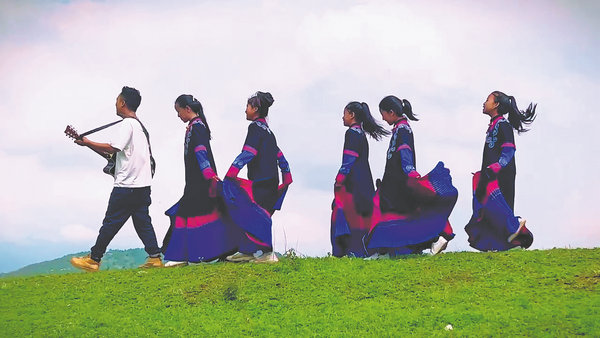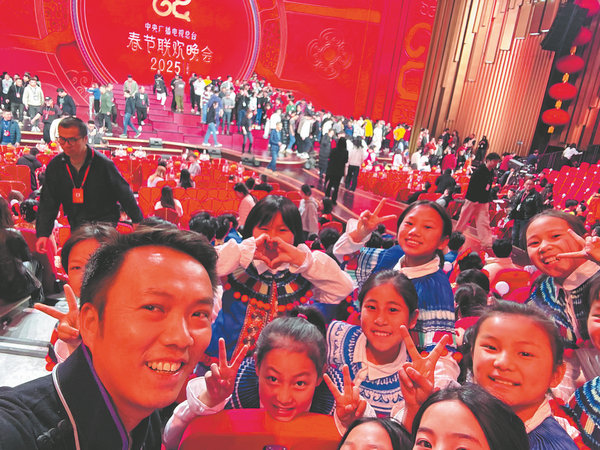

On a stage more than 2,200 kilometers away from their home in the small village in Puge county, Liangshan Yi autonomous prefecture, Sichuan province — far removed from the bright lights of China's urban centers — the Niuniu Choir captured hearts at home and abroad.
During China's most-watched TV event of the year — the CCTV Spring Festival Gala, which was broadcast on Jan 28 — the sweet, innocent voices of the children's choir from one of the most remote regions in the country stole the spotlight.

The sight of the 38 smiling girls, aged from 7 to 14, dressed in traditional Yi attire and their pure, clear voices as they sang Jade Plate, elegantly showcased the beauty of Yi culture.
"That was at the end of January. We spent over a month in Beijing preparing and returned home the day after the gala aired. We will never forget the experience of performing on the country's biggest stage," says Jibu Xiaolong, a music teacher from Puge county, who is the founder of the Niuniu Choir.
"The melody is graceful, and the lyrics are poetic," wrote a viewer on social media. "I can feel the children expressing their love for their home, and the beauty of Yi culture, through their singing."
Another viewer wrote, "It's one of my favorite performances in the gala. The children's angelic voices filled the air, a beautiful contrast to the bustling, fast-paced city world."
The children were impressed by the sight of a rocket launch in Xichang, capital of the Liangshan Yi autonomous prefecture, which is known as "moon city". It is home to the Xichang Satellite Launch Center, the starting point for China's lunar exploration missions. In 2007, the country's first lunar probe, Chang'e 1, was launched from there. Since then, Chang'e 2, 3 and 4 have followed, exploring, orbiting, and landing on the moon. According to Jibu Xiaolong, the inspiration for Jade Plate came from this ongoing exploration and was adapted from a song written by his friend Tan Qiyin called Asking the Moon.